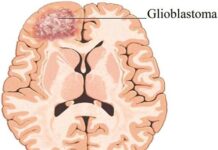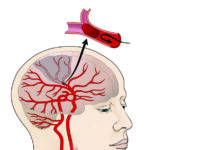Scientist Prof. Dan Levy and his team from the Ben-Gurion University of the Negev and National Institute for Biotechnology in the Negev (NIBN) have discovered a novel mechanism that is a promising target for cancer therapeutics.
“Our perception of the specific multistep molecular mechanistic process which regulates cancer initiation and progression found in this study may allow us to develop new therapeutic strategies to optimize cancer treatment. While we investigated this mechanism in breast cancer models, we are currently expanding it to other cancer types such as melanoma and glioblastoma” says Prof. Levy.
“Our understanding of human cancer progression and treatment largely depends on our ability to scientifically explore and deeply decipher the different cellular events which control these processes. A central process that regulates cancer pathology is gene expression, or in other words, what are the mechanisms which turn a gene on or off? Can we control a selective gene expression to obtain a delicate balance in cancer-related cellular processes? Can we direct specific cellular factors to regulate this process? Obtaining such a balance will enable the cell to decide which genes to activate in a given time and tissue which will subsequently determine if a cell will become malignant or not,” explains Prof. Levy.
This process is partly maintained by post-translational modifications. One such modification is methylation, which refers to the addition of a chemical moiety (a methyl group) to a lysine residue in a given protein.
In this paper, the collaborating research teams have identified and characterized a new methylation event, catalyzed by the methyltransferase SETD6, on the transcription factor BRD4. BRD4 has a fundamental role in the regulation of gene expression and thus became a promising epigenetic therapeutic candidate to target diverse pathologies. In a comprehensive biochemical, molecular and genomics study, they have provided evidence that the methylation of BRD4 inhibits the expression of genes that are involved in translation and abolish protein synthesis in cells. BRD4 methylation determines the recruitment of the transcription factor E2F1 to selected target genes that are involved in protein generation, a molecular mechanism that facilitates the balanced expression of these genes. Unbalanced gene expression involved in protein synthesis may lead to increased proliferation and transformation which can subsequently result in the initiation and progression of cancer.
“Our research has great potential for the identification of new therapeutic targets. Indeed, our research group deals with the development of specific molecules to modulate the enzymatic and cellular activity of SETD6 and other methyltransferases. Such agents might be used in the future for the generation of therapy strategies,” says Prof. Levy.
The research was led by scientists at BGU and the National Institute for Biotechnology in the Negev (NIBN) and the findings of the research were published recently in Science Advances.



























